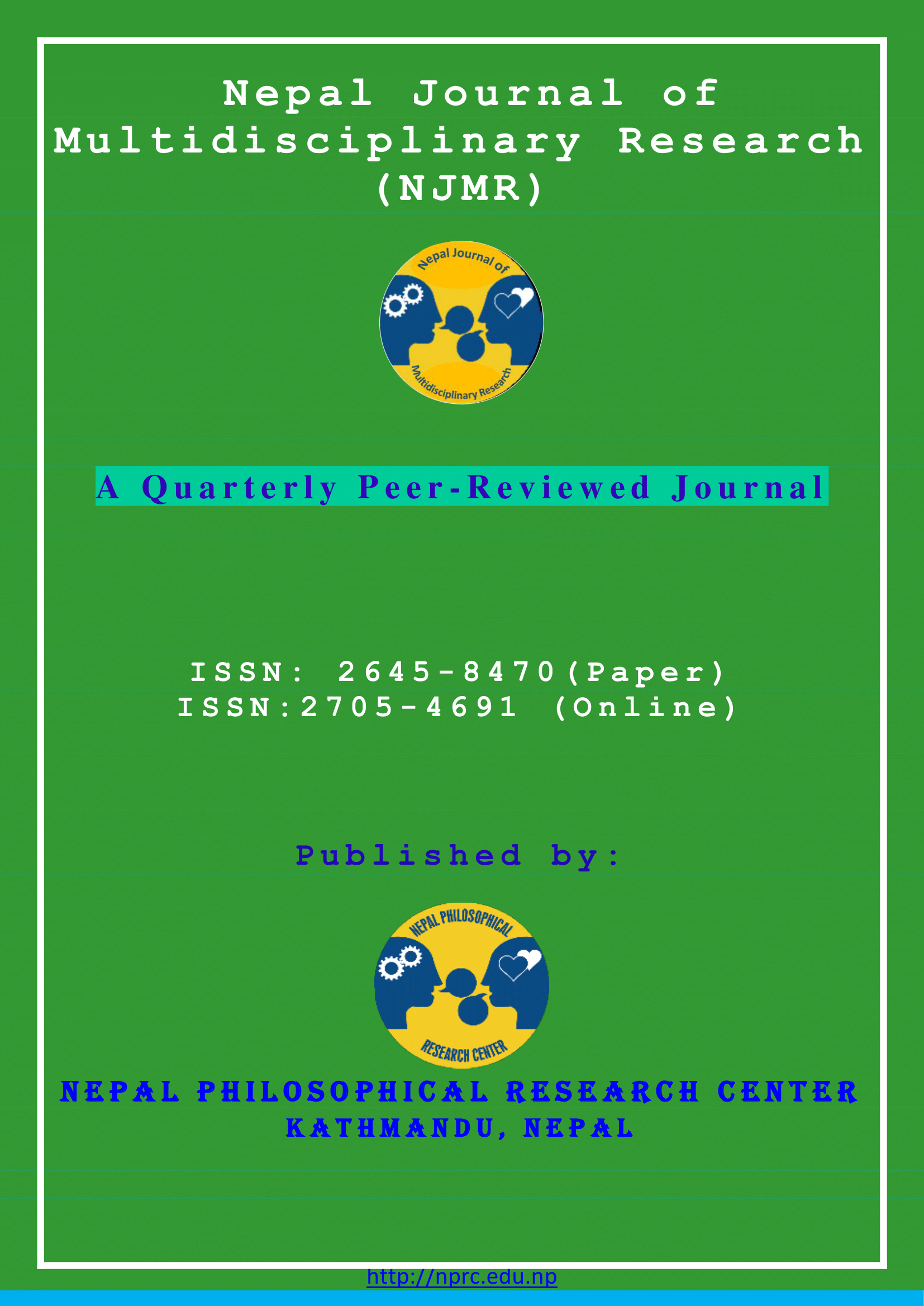The Impact of Capitalist Psychology of Mid Victorian Erain Charles Dickens’ Novel Great Expectations
DOI:
https://doi.org/10.3126/njmr.v3i2.33020Keywords:
Charles Dickens, financial capitalism, Great Expectations, Marxist, Victorian eraAbstract
My thesis argues that Charles Dickens reflects the capitalist psychology of mid Victorian London in his novel Great Expectations. It is fully narrated in the first person and a time conquering master piece of Charles Dickens. In this novel, he touches on expectations in the life of diverse characters, the greatest of which being the expectation of Pip, the central character of the novel and also his moves from childhood to adulthood. He portrays how difficult it is for a lower class person to become a gentleman. The life for the upper class is easy but the life for the lower class is hard and painful in Victorian England. He vividly represents the existing picture of the society working in the minds of various characters and their expectations. Dickens's themes include wealth and poverty, love and rejection and the eventual triumph of good over evil.The purpose of this study is to describe the writer’s view of capitalism and its consequences such as ending of family units, illness, mutual exploitation, human passions, expectations and selfishness through character and plot.
Downloads
Downloads
Published
How to Cite
Issue
Section
License
This license enables reusers to distribute, remix, adapt, and build upon the material in any medium or format for noncommercial purposes only, and only so long as attribution is given to the creator.




